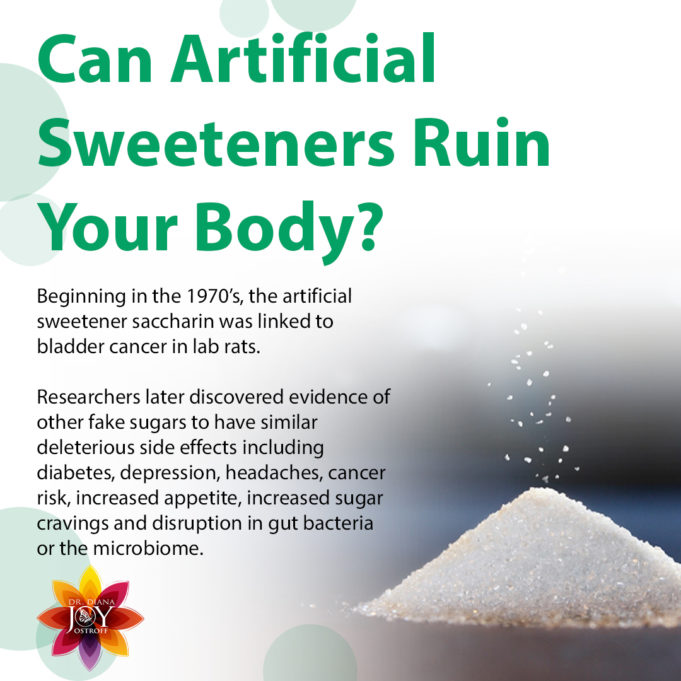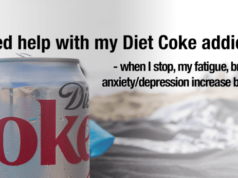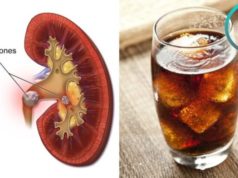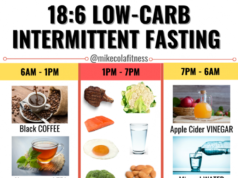Why is diet soda bad for you? It’s a question that’s been swirling around for years, leaving many of us feeling like we’re stuck in a sweet, artificial, and potentially unhealthy limbo. Diet soda, with its promise of zero calories, has become a staple in many people’s lives, but it’s time to take a closer look at the potential downsides of this seemingly guilt-free beverage.
The truth is, diet soda isn’t as harmless as it seems. While it might save you calories, the artificial sweeteners it contains can have some surprising and potentially harmful effects on your body. From messing with your gut bacteria to possibly increasing your risk of metabolic disorders, the consequences of reaching for that diet soda can be far-reaching.
Artificial Sweeteners and Their Effects
Artificial sweeteners are sugar substitutes that provide sweetness without the calories. They are commonly used in diet sodas, sugar-free foods, and other products. While they can help people reduce their sugar intake, there’s growing concern about their potential long-term health effects.
The Mechanisms of Artificial Sweeteners, Why is diet soda bad for you
Artificial sweeteners work by stimulating the taste buds, sending signals to the brain that create the sensation of sweetness. However, they bypass the normal metabolic pathways involved in processing sugar, which can have various implications for the body.
Artificial Sweeteners and Gut Bacteria
The gut microbiome, the trillions of bacteria that live in our digestive tract, plays a crucial role in digestion, immunity, and overall health. Studies have shown that artificial sweeteners can disrupt the balance of gut bacteria.
Artificial sweeteners, like sucralose and saccharin, have been linked to changes in the composition and function of gut bacteria, potentially impacting digestion, inflammation, and even mood.
- Altered Gut Microbiota Composition:Artificial sweeteners can alter the types and proportions of bacteria in the gut, potentially favoring the growth of certain bacteria over others. This shift in the gut microbiome can disrupt the delicate balance of beneficial and harmful bacteria.
- Increased Inflammation:Some studies suggest that artificial sweeteners may contribute to gut inflammation, a condition linked to various chronic diseases. The changes in gut bacteria composition caused by artificial sweeteners could be a contributing factor to this inflammation.
Artificial Sweeteners and Metabolic Disorders
Emerging research suggests a possible link between artificial sweeteners and metabolic disorders, including insulin resistance and type 2 diabetes.
- Insulin Resistance:Insulin resistance is a condition where the body’s cells become less responsive to insulin, a hormone that regulates blood sugar levels. Some studies have observed that artificial sweeteners may interfere with insulin signaling, potentially contributing to insulin resistance.
- Type 2 Diabetes:Type 2 diabetes is a chronic condition characterized by high blood sugar levels. While more research is needed, some studies suggest that artificial sweeteners might be associated with an increased risk of type 2 diabetes. This association could be related to their potential impact on gut bacteria, insulin resistance, and other metabolic processes.
Diet Soda and Calorie Intake
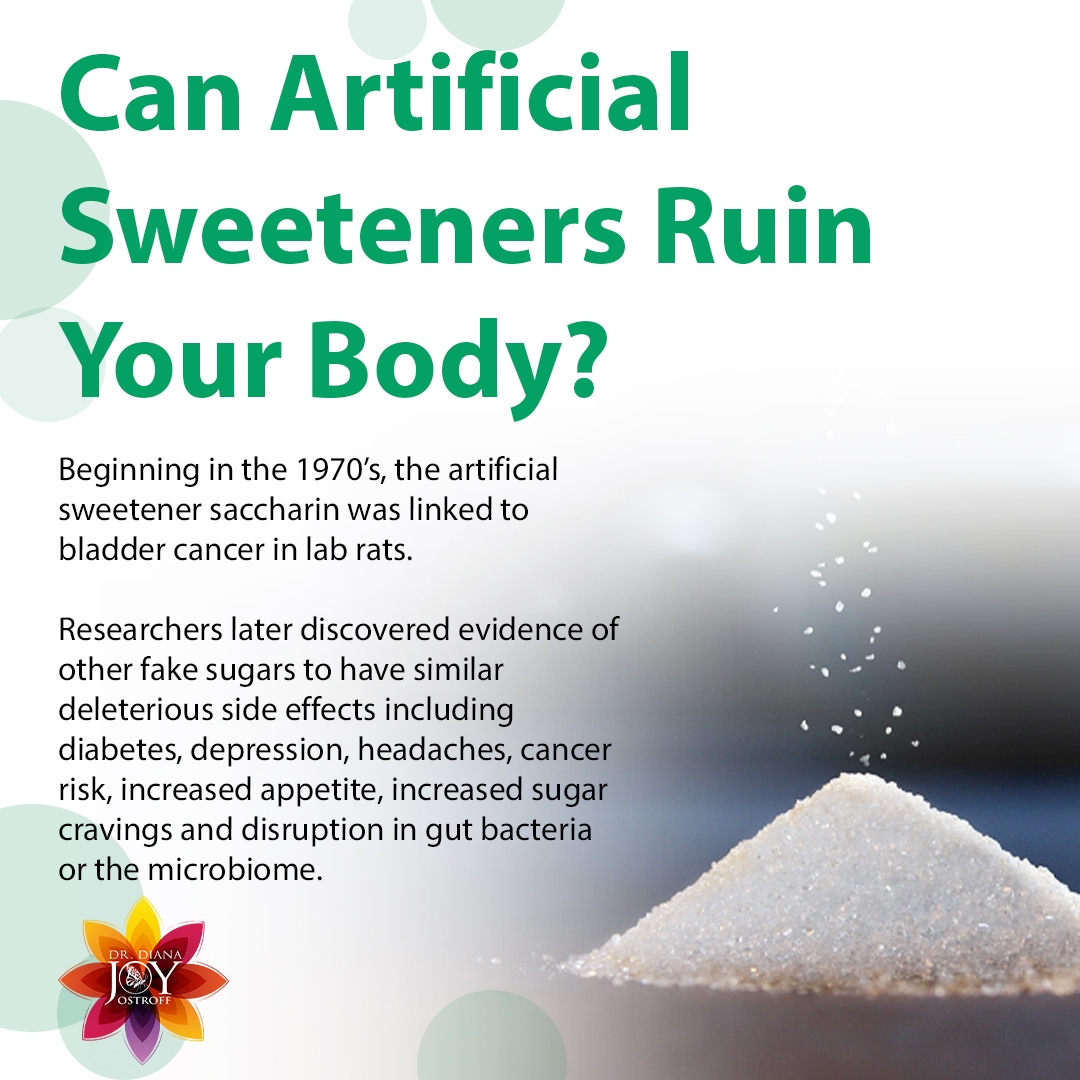
Diet soda is often marketed as a calorie-free alternative to regular soda, but the impact of diet soda on calorie intake is not as simple as it might seem. While it’s true that diet soda contains zero calories, there is growing evidence that it may not be as beneficial for weight management as initially thought.
Potential Impact on Appetite Regulation
Diet soda’s potential impact on appetite regulation is a topic of ongoing research. Some studies suggest that artificial sweeteners, the primary ingredients in diet soda, may interfere with the body’s natural mechanisms for regulating appetite and satiety. This disruption can lead to increased hunger and cravings, potentially increasing overall calorie intake.
Artificial sweeteners can trick the brain into expecting a sugar rush, but since they don’t deliver the calories, the body may demand more food to compensate.
For instance, a study published in the journalNature* found that rats that consumed artificial sweeteners experienced changes in gut bacteria that were associated with increased appetite and weight gain. While more research is needed to fully understand the implications of these findings for humans, they highlight the potential for diet soda to have unintended consequences for appetite regulation.
Diet Soda Consumption and Food Choices
Diet soda consumption might also influence food choices and overall calorie intake in other ways. The belief that diet soda is a guilt-free option may lead individuals to consume more high-calorie foods, assuming they are “balancing out” their calorie intake.
Listen, ditching the sugar in your soda is a good start, but don’t get too cocky with those diet versions. They’re like those “friends” who promise to help you lose weight but then just end up making you crave a whole pizza.
If you’re serious about shedding those pounds, check out this guide on how to lose weight for a month. Trust me, you’ll be happier with the results than you would be with a diet soda hangover.
Think of it like this: If you think you’re saving calories by drinking diet soda, you might be more likely to indulge in a large pizza or a bag of chips.
Furthermore, diet soda’s sweet taste can create cravings for other sugary foods and drinks, potentially contributing to an overall increase in calorie intake.
Diet soda might seem like a guilt-free way to quench your thirst, but the artificial sweeteners can actually mess with your gut bacteria and leave you craving more sugary treats. If you’re serious about shedding those pounds, ditch the diet soda and check out best diet to lose weight for some real, healthy solutions.
Remember, a balanced diet is key to lasting weight loss, and that means ditching the chemical cocktails disguised as “diet” drinks.
Diet Soda and Cardiovascular Health
While diet soda might seem like a harmless alternative to regular soda, there’s growing concern about its potential impact on cardiovascular health. Studies have begun to uncover a possible link between diet soda consumption and an increased risk of heart disease and stroke.
Artificial Sweeteners and Blood Pressure
Artificial sweeteners, the main ingredient in diet soda, have been implicated in blood pressure regulation. Some research suggests that these sweeteners might disrupt the gut microbiome, the trillions of bacteria that live in our digestive system. This disruption could lead to changes in the production of certain chemicals that influence blood pressure, potentially contributing to an increase in blood pressure.
Diet Soda and Inflammation
Inflammation is a natural process that helps the body heal, but chronic inflammation can contribute to various diseases, including heart disease. Emerging evidence suggests that diet soda consumption might be associated with increased inflammation. Artificial sweeteners could trigger an inflammatory response in the body, potentially contributing to the development of cardiovascular disease.
Diet Soda and Other Health Concerns
While the link between diet soda and weight gain is debated, there’s growing evidence suggesting it might be associated with other health issues, some potentially serious.
Potential Association with Cancer
Studies have explored the potential link between diet soda consumption and cancer risk. A large-scale study published in the journal
Cancer Research* in 2012, which followed over 600,000 participants for an average of 10 years, found that those who drank diet soda daily had a higher risk of developing certain types of cancer, including leukemia, lymphoma, and multiple myeloma.
“The study found a statistically significant association between diet soda consumption and an increased risk of these cancers.”
It’s important to note that this study, like many others, only demonstrates an association, not a cause-and-effect relationship. More research is needed to understand the exact mechanisms involved and whether the association is causal.
Potential Impact on Bone Health
Some studies have suggested a potential link between diet soda consumption and bone health issues, including osteoporosis. A study published in the journal
American Journal of Clinical Nutrition* in 2014 found that women who drank diet soda daily had lower bone mineral density than those who didn’t.
“The study found that women who drank diet soda daily had lower bone mineral density than those who didn’t, particularly in the hip and spine.”
Diet soda is like that friend who promises to help you lose weight but secretly sabotages your efforts. It tricks your body into craving sugary treats, which is the opposite of what you want on a keto diet. Plus, those artificial sweeteners can mess with your gut bacteria, leading to cravings and making it harder to stick to your healthy eating plan.
So, ditch the diet soda and embrace real, whole foods – your body (and your taste buds) will thank you for it!
It’s thought that artificial sweeteners in diet soda may interfere with calcium absorption, a crucial mineral for bone health. However, more research is needed to confirm this link and understand the exact mechanisms involved.
Potential Link to Cognitive Decline
Emerging research suggests a possible connection between diet soda consumption and cognitive decline. A study published in the journal
Stroke* in 2017 found that individuals who drank diet soda daily were more likely to experience cognitive decline, including memory loss and difficulty with thinking skills.
“The study found that those who drank diet soda daily were more likely to experience cognitive decline, including memory loss and difficulty with thinking skills.”
The exact mechanisms behind this potential link are still being investigated, but some theories suggest that artificial sweeteners may disrupt the gut microbiome, which is linked to brain health. Further research is needed to understand this complex relationship.
Alternatives to Diet Soda
So, you’ve decided to ditch the diet soda. You’re not alone. Many people are realizing the potential downsides of artificial sweeteners and are looking for healthier alternatives. But what can you drink instead? Fear not, dear reader, for the world of beverages is vast and full of delicious, healthy options!
Comparing Beverage Options
Here’s a breakdown of some popular beverage choices and their health benefits:
| Beverage | Health Benefits |
|---|---|
| Water |
|
| Unsweetened Tea |
|
| Fruit-Infused Water |
|
Tips for Reducing Soda Consumption
Reducing soda consumption can be a gradual process. Here are some tips to make the transition smoother:
- Start small:Instead of cutting out soda completely, try replacing one soda per day with a healthier alternative.
- Find alternatives you enjoy:Experiment with different types of water, teas, and fruit-infused beverages to find ones you find appealing.
- Stay hydrated:Carry a reusable water bottle with you and sip on it throughout the day.
- Read labels carefully:Pay attention to the sugar content of beverages, even those marketed as “healthy.”
- Make it a habit:Once you’ve found healthy alternatives you enjoy, make them a regular part of your routine.
Homemade Beverage Recipes
Looking for delicious and healthy drinks to replace diet soda? Try these homemade beverage recipes:
- Cucumber Mint Water:Slice cucumbers and mint leaves, add them to a pitcher of water, and let it chill in the refrigerator for at least an hour.
- Citrus Infused Water:Combine sliced oranges, lemons, limes, or grapefruits with water and chill.
- Strawberry Basil Spritzer:Blend strawberries, basil leaves, and a splash of water. Strain the mixture and add sparkling water for a refreshing spritzer.
- Ginger Peach Iced Tea:Brew a pot of unsweetened black tea. Combine the tea with sliced peaches, ginger, and a touch of honey or agave nectar. Chill and serve over ice.
Conclusion: Why Is Diet Soda Bad For You
So, while diet soda might seem like a harmless choice, the evidence suggests that it could be doing more harm than good. From disrupting your gut microbiome to potentially increasing your risk of chronic diseases, it’s time to reconsider your relationship with this artificial sweetener-laden beverage.
Perhaps it’s time to embrace the natural sweetness of water, unsweetened tea, or fruit-infused water. Your body will thank you for it, and you might even discover a newfound appreciation for the simple pleasures of life.
FAQ Resource
Is diet soda as bad as regular soda?
While diet soda doesn’t contain the sugar found in regular soda, the artificial sweeteners it contains can have their own set of potential health drawbacks. It’s important to consider the overall impact of both types of soda on your health.
Can diet soda make you gain weight?
While diet soda doesn’t contain calories, some studies suggest that it might actually contribute to weight gain. The artificial sweeteners in diet soda can disrupt your gut bacteria and appetite regulation, potentially leading to increased cravings and food intake.
Is diet soda safe during pregnancy?
The safety of diet soda during pregnancy is still being studied. Some research suggests that artificial sweeteners may cross the placenta and potentially affect the developing fetus. It’s best to consult with your doctor about the best choices for you and your baby.
What are some healthy alternatives to diet soda?
There are plenty of delicious and healthy alternatives to diet soda! Try water, unsweetened tea, sparkling water with a squeeze of lemon or lime, or fruit-infused water. You can also experiment with homemade kombucha or infused water with fresh herbs.















